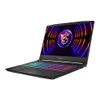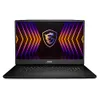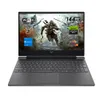I was ready to frown at the Acer Nitro 17, but it surprised me
The Acer Nitro 17 isn’t perfect for everybody, but it is perfect for somebody
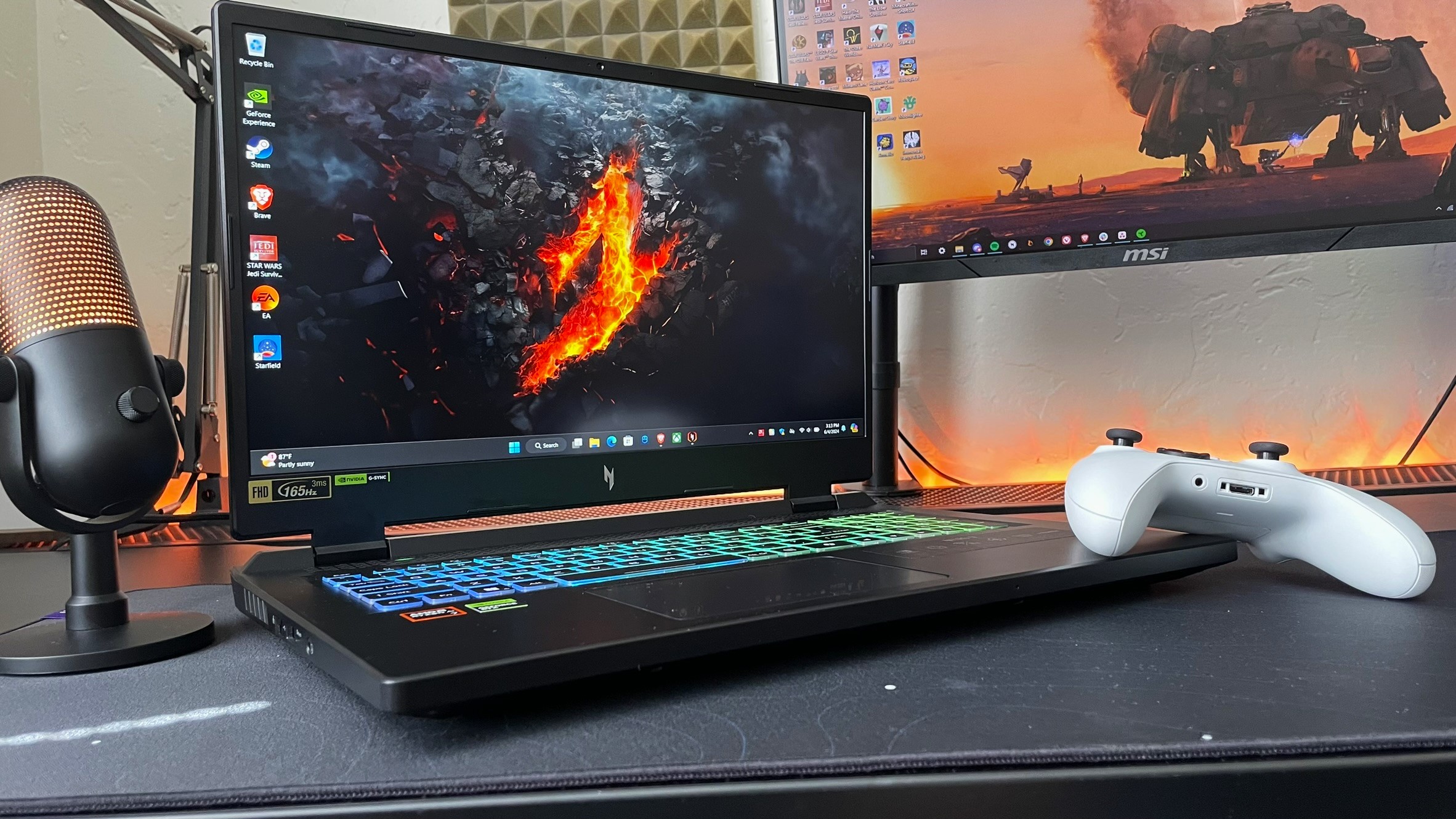
I was ready to frown upon the bulky Acer Nitro 17, but it surprised me in a way I didn’t see coming.
As I wandered the galaxy in Starfield on the Nitro 17’s enormous display, I found myself wondering: Could a 17-inch gaming laptop replace your desktop PC? What if you could only afford one or the other? Is the Nitro 17 the perfect balance of screen real estate and portability?
I love my custom desktop gaming PC, but the more I tested the Nitro 17, the more I saw the case for it. Gaming laptops don’t always offer good value for your money compared to desktop PCs, but the Nitro 17 is a refreshing change in that trend.
The Acer Nitro 17 might not be the best PC gaming device for everyone, but it definitely is the perfect solution for someone. Here’s how it changed my mind — and why it might change yours, too.
Can a gaming laptop be a better value than a PC?
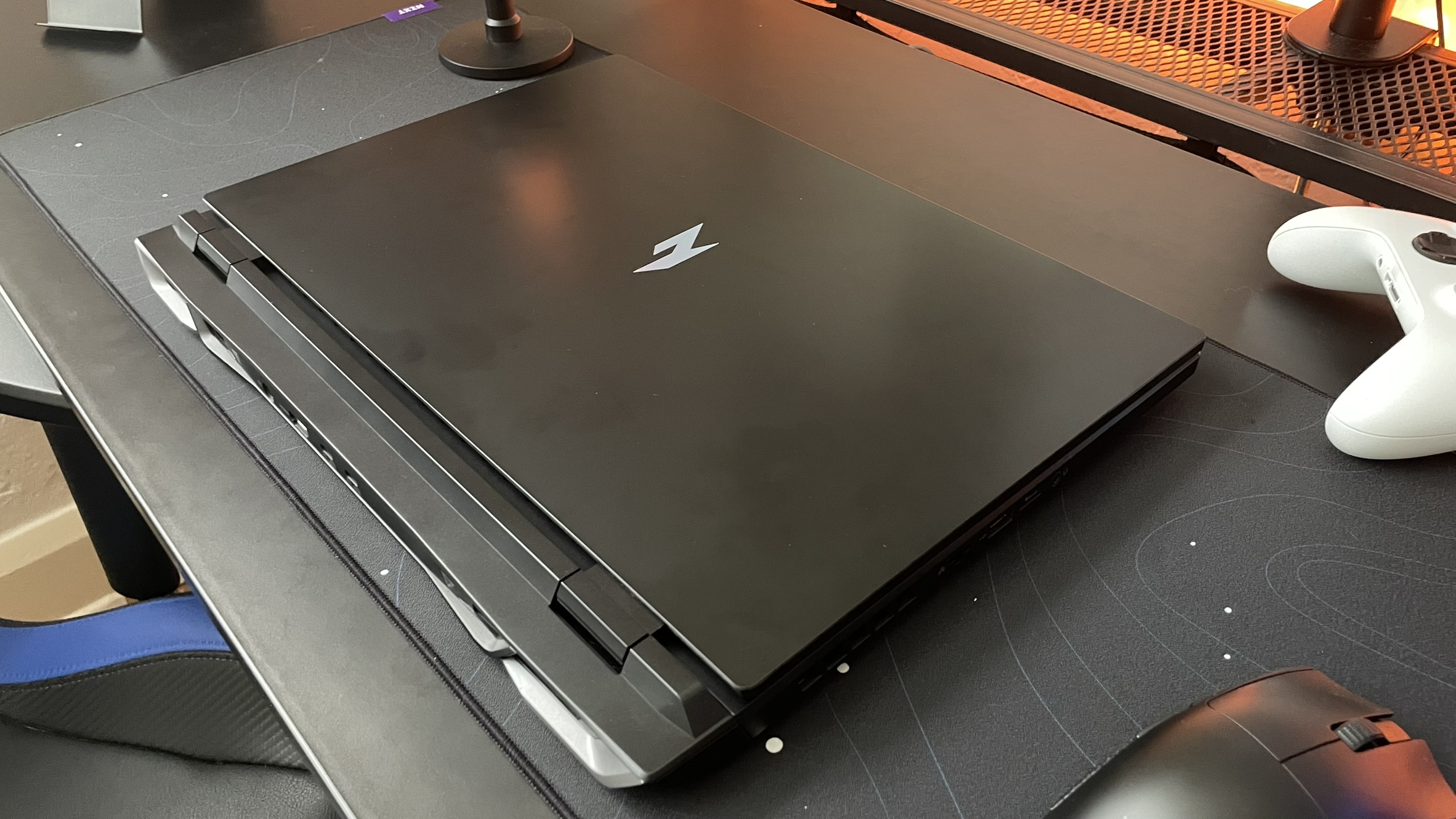
There’s a common assumption in the PC gaming community that a desktop gaming PC is better value for your money than a gaming laptop. This is often true since it’s simply more expensive to fit powerful gaming hardware into the compact form factor of a laptop, and desktop gaming PCs are easier to upgrade. However, there are rare instances where a gaming laptop challenges that norm.
The Acer Nitro 17 is one such laptop. At first, I was skeptical. I tend to prefer smaller laptops, so carrying around this 17-inch tank felt a bit like carrying my whole desktop PC. That view slowly changed as I spent time gaming on the Nitro 17.
I began seeing it from new angles, especially considering its relatively low starting price of $1,200.
Stay in the know with Laptop Mag
Get our in-depth reviews, helpful tips, great deals, and the biggest news stories delivered to your inbox.
The model I tested is priced at $1,250 and includes an AMD Ryzen 7 8845HS CPU, Nvidia RTX 4060 GPU with 8GB of VRAM, 16GB of RAM, and 1TB of storage. Of course, since it’s a laptop, the display and keyboard are also included in that price. Building a desktop PC with similar specs could cost significantly more than $1,250, especially if you include the cost of a display and peripherals.
I began seeing it from new angles, especially considering its relatively low starting price of $1,200.
You could easily build a desktop gaming PC for $1250 or less – I’ve done it myself. However, that budget would likely get you a significantly less powerful GPU.
The Nitro 17 has drawbacks, but it’s a surprisingly good value for its components. It could be a great option for someone getting into PC gaming for the first time who doesn’t want to spend a lot on their first setup, especially those who may be intimidated about building a custom desktop PC.
The Goldilocks Zone: The unique advantage of a 17-inch laptop
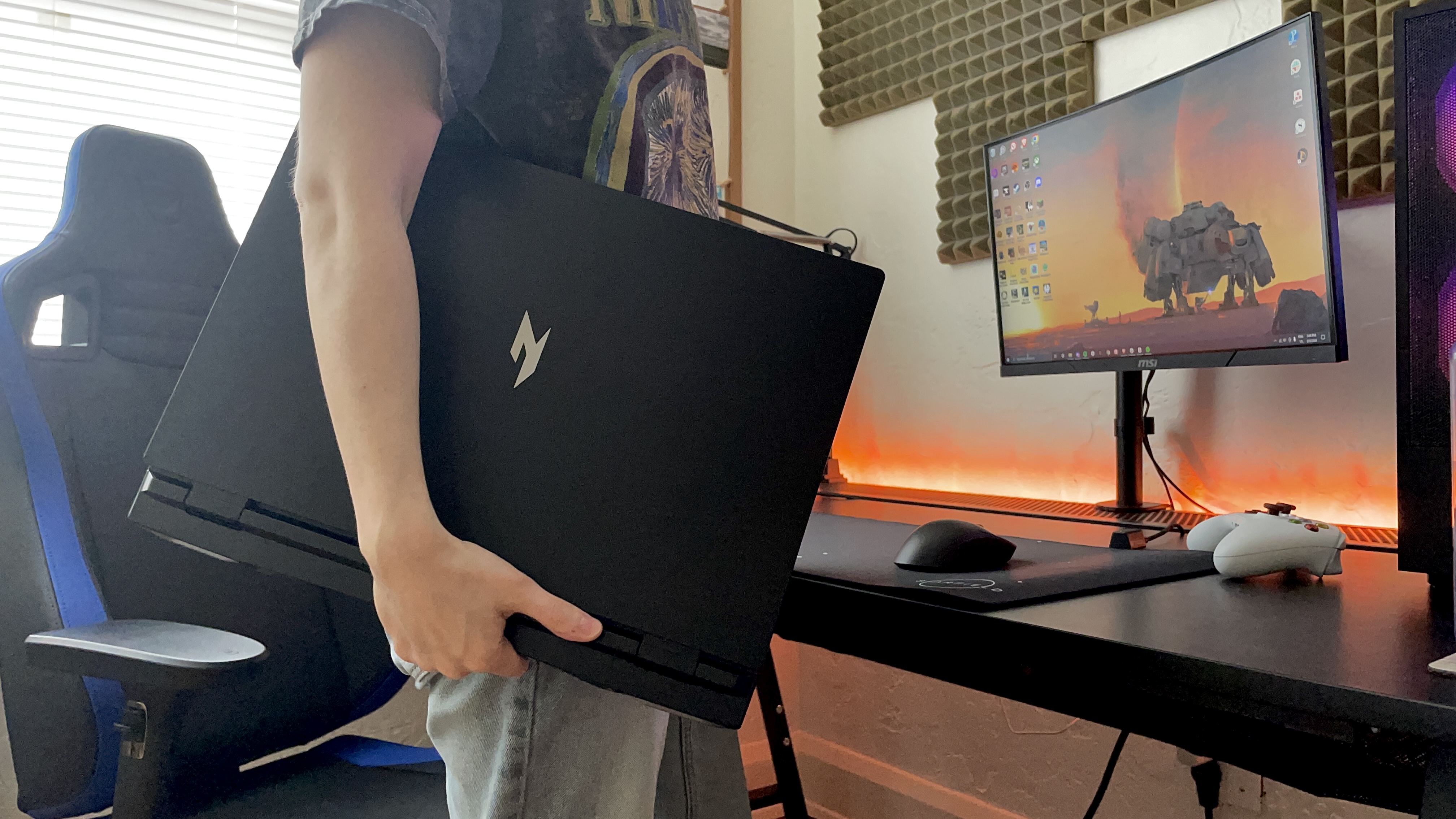
Price isn’t the only unique factor that made the Acer Nitro 17 stand out to me. The screen size was the first spec that caught my attention. 17-inch laptops can be a bit awkward since they’re not as portable as smaller laptops, which somewhat defeats the purpose of getting a laptop rather than a desktop PC. However, I’ve noticed a few scenarios where a 17-inch display can actually be an advantage.
For example, a 17-inch gaming laptop like the Nitro 17 could be the perfect middle-ground solution for someone who can only afford a laptop or a PC. It has a fair price with good specs and strong performance. The large display isn’t as big as a desktop display, but it’s still large enough for an immersive gaming experience, whether on the go or at home. If you do want an even larger screen, an external monitor is much less expensive than an entire desktop PC.
Even if you could get the same specs for the same price in a desktop gaming PC, you wouldn’t be able to take it anywhere.
This highlights the “Goldilocks Zone” the Nitro 17 sits in. Its large display makes it a bit more like a desktop PC than most other gaming laptops, but it still retains the portability of the laptop form factor (despite its bulk). Even if you could get the same specs for the same price in a desktop gaming PC, you wouldn’t be able to take it anywhere. So, if you can only afford one or the other, opting for a 17-inch gaming laptop like the Nitro 17 offers more flexibility.
Similarly, a laptop might be the only logistically feasible option in many situations, but you might still want a large display and powerful hardware. For example, the Nitro 17 could be great for college gamers since it’s easier to move a laptop between home and your dorm every few months than a desktop PC. Plus, the Nitro 17 matches affordability with performance, and it can double as a school laptop thanks to its minimalistic chassis design.
Is there a one-size-fits-all in PC gaming hardware?
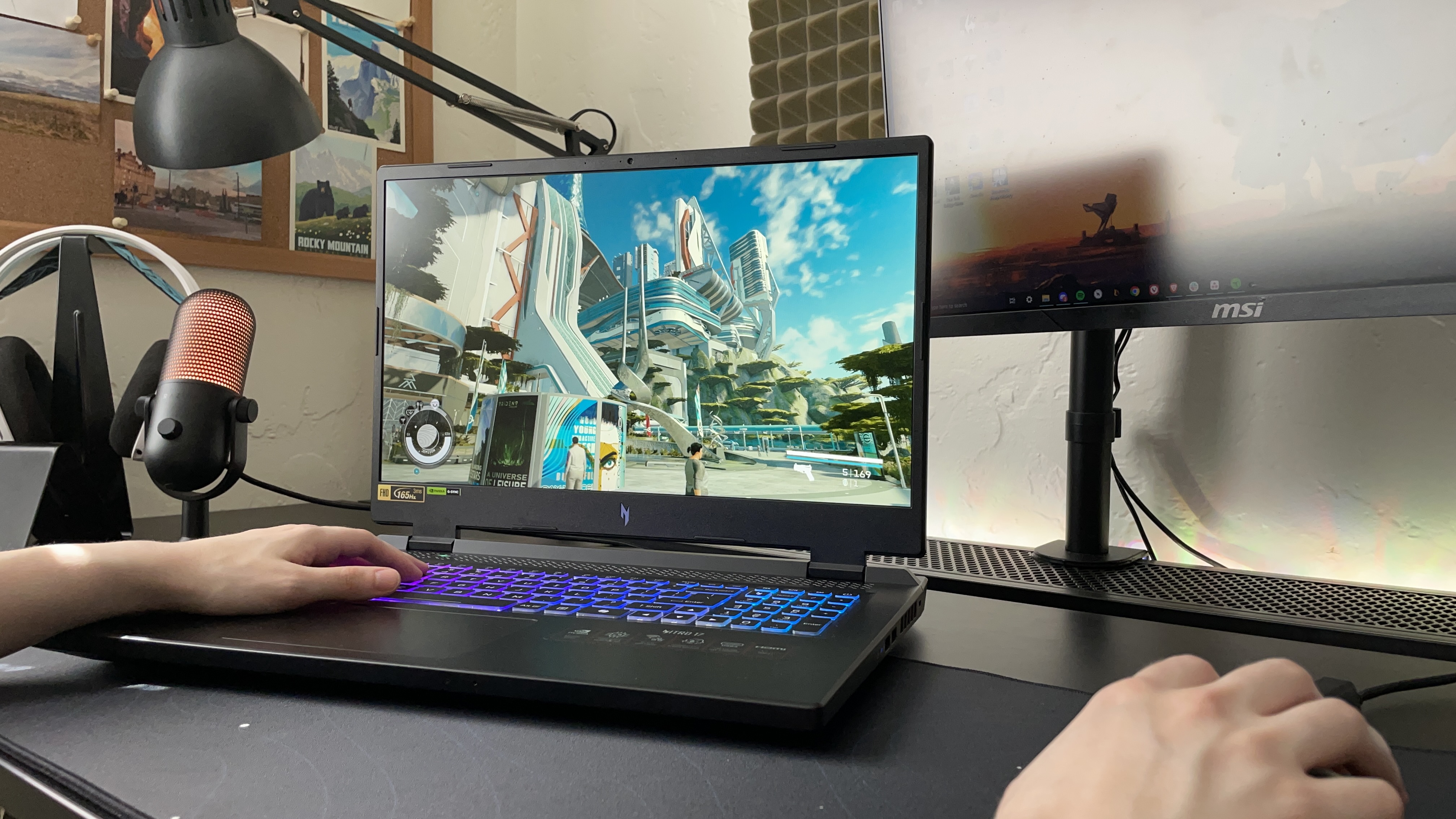
The Nitro 17 has a lot going for it and seems to strike a great balance between the benefits of a laptop and a desktop PC. Can it completely replace your desktop gaming PC, though? Is it possible that a 17-inch laptop is the ideal one-size-fits-all solution for PC gaming?
Yes – and no. After testing it out, I can confidently say that the Acer Nitro 17 can replace a desktop gaming PC. However, it’s best for niche situations, specifically in the budget, sub-$1500 price range. If money is no option or you mainly game at home, the benefits of a budget 17-inch gaming laptop like the Nitro 17 aren’t going to be as meaningful. That said, its strengths are uniquely advantageous for certain types of gamers.
Maybe you have a tight budget but want to try out PC gaming or don’t have much desk space. Or you just like to be a bit more mobile. For gamers in these types of situations, the Nitro 17 is a fantastic option, offering a mix of benefits that are hard to find with smaller gaming laptops or custom-built desktop PCs.
More from Laptop Mag
- Gaming laptop vs. gaming PC: Here’s what’s right for you
- The 9 most important factors for buying a gaming laptop
- Buying a gaming laptop? This is how much storage you really need

Stevie Bonifield is a freelance tech journalist who has written for PC Gamer, Tom's Guide, and Laptop Mag on everything from gaming to smartwatches. Outside of writing, Stevie loves indie games, TTRPGs, and building way too many custom keyboards.





